Related Research Articles
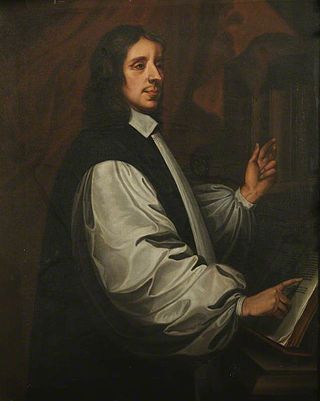
John Fell was an English churchman and influential academic. He served as Dean of Christ Church, Oxford, and later concomitantly as Bishop of Oxford.
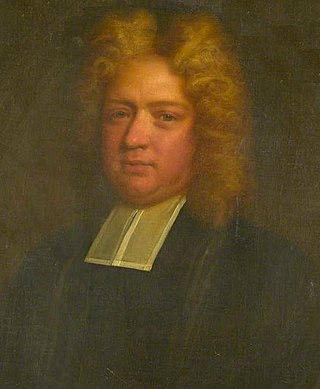
William Sherlock was an English church leader.
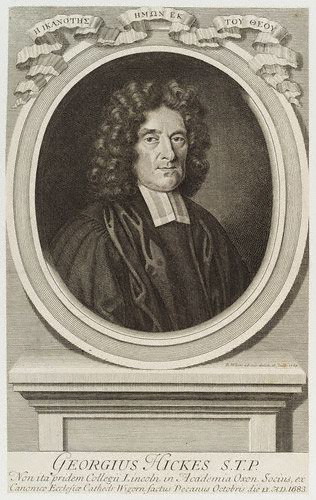
George Hickes was an English divine and scholar.

Richard Cox was an English clergyman, who was Dean of Westminster and Bishop of Ely.

White Kennett was an English bishop and antiquarian. He was educated at Westminster School and at St Edmund Hall, Oxford, where, while an undergraduate, he published several translations of Latin works, including Erasmus' In Praise of Folly.

Robert Frampton was Bishop of Gloucester in England from 1681 to 1691 and later a Non-juror.
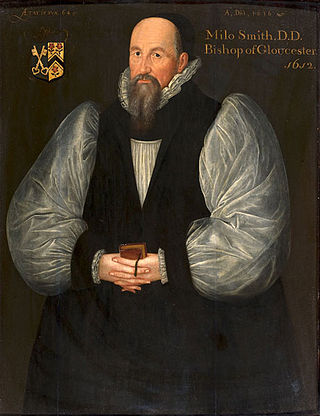
Miles Smith was a clergyman of the Church of England renowned as a most accomplished theologian, scholar and bibliophile. After attaining the degree of DD, or doctor of divinity, he progressed to become Bishop of Gloucester (1612-1624). Although he may have been at times an indifferent administrator, his erudition contributed fundamentally to the translation and production of the King James Bible.

John Sharp was an English divine who served as Archbishop of York.
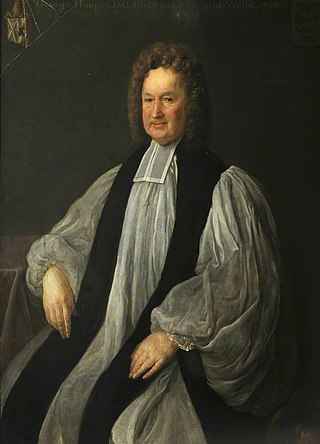
George Hooper was a learned and influential English High church cleric of the late seventeenth and early eighteenth centuries. He served as bishop of the Welsh diocese, St Asaph, and later for the diocese of Bath and Wells, as well as chaplain to members of the royal family.
Griffith Williams (c.1589–1672) was the Anglican bishop of Ossory. He was opposed to the Puritans.
John Parker was a Church of Ireland clergyman who came to prominence after the English Restoration, first as Bishop of Elphin, then as Archbishop of Tuam and finally as Archbishop of Dublin and Primate of Ireland.
Thomas Sparke (1548–1616) was an English clergyman, who represented the Puritan point of view both at the 1584 Lambeth Conference and the 1604 Hampton Court Conference.
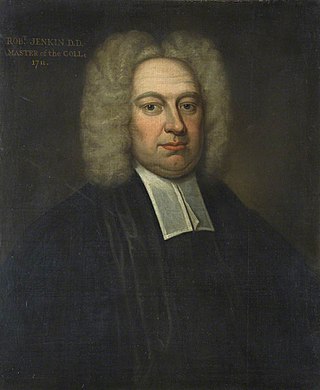
Robert Jenkin was an English clergyman, a nonjuror of 1698, later Master of St John's College, Cambridge, Lady Margaret's Professor of Divinity, and opponent of John Locke.

Robert Grove (1634–1696) was an English Bishop of Chichester.
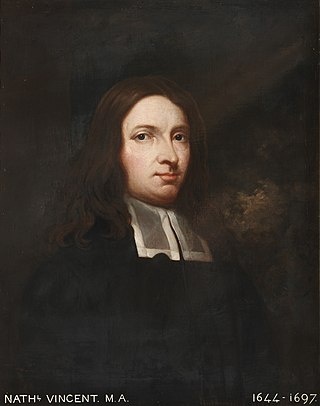
Nathaniel Vincent was an English nonconformist minister, ejected in 1662 and several times imprisoned.

Thomas Wood (1607–1692) was an English churchman, Bishop of Lichfield and Coventry from 1671 to 1692.
William Clagett (1646–1688) was an English clergyman, known as a controversialist.
Edward Boughen, D.D. (1587–1660?), was an English Royalist divine.
Edward Gee (1657–1730) was an English churchman, known as a controversialist, and later successively Dean of Peterborough and Dean of Lincoln.
Adam Littleton (1627–1694) was an English cleric and lexicographer.
References
- ↑ Gordon Goodwin (1885). . In Stephen, Leslie (ed.). Dictionary of National Biography . Vol. 4. London: Smith, Elder & Co. p. 52.
DNB references
These references are found in the DNB article referred to above.
- ↑ Information from the Rector of Whitchurch
- ↑ Wood's Athen. Oxon. ed. Bliss, iv. 668
- ↑ Lipscomb's Hist. Buckinghamshire, iv. 573
- ↑ Le Neve'a Fasti Ecel. Angl. ed. Hardy, i. 460, ii. 443
- ↑ Agnew's Protestant Exiles, 2nd ed. i. 30. 42, iii. 19
- ↑ Hist. Reg. 1722, Chronicles Diary, page 29
- ↑ Notes and Queries, 2nd ser. x. 307, 3rd. ser. vii. 37-8
- ↑ Introduction by F. G. L. to new edit. of the Reformed Monastery. duodecimo, London (1865)
- ↑ Jones's Catalogue of Tracts for and against Popery (Chetham Soc.), part i. 237. ii. 382. 523.